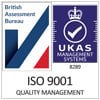When it comes to resume parsing, recruiting and talent acquisition leaders often have a lot of questions. Technology moves fast, so it’s natural to want to clarify how resume parsing works and what different resume parsing tools bring to the table.
In this article, we’ll break down some common questions so you can feel confident about evaluating and leveraging resume parsers in your recruiting processes.
What is resume parsing, really?
Resume parsing is like having a skilled assistant scan every resume that comes into your system and pull out the essential info you need – names, job history, skills, education, and more – without you lifting a finger. Instead of scrolling through resumes one by one, parsing software sifts through them, capturing details directly into your database. That way, you’re not just collecting resumes—you’re organizing valuable data that can be ready to work for you.
How does resume parsing work?
Under the hood, resume parsing uses a mix of AI and natural language processing to “read” resumes in much the same way you (a human!) would. It recognizes patterns and pulls out key information by looking at how words are grouped and formatted. So, whether the resume is in PDF, Word, or even HTML format, a parser can still “see” and record critical details.
How accurate is resume parsing?
Accuracy can be a real concern. The good news is that quality parsing technology gets better over time because it “learns” from the data it processes. Plus, you can expect reputable resume parsing software to handle different resume formats, and ultimately give you a clear, organized view of candidates’ qualifications.
How does an ATS parse resumes?
Applicant Tracking Systems (ATS) parse resumes the same way specialized resume parsing tools do - they scan incoming resumes for key information and then categorize the data into specific fields within the ATS. An ATS might have an internal parser, or be enhanced by an integration with a specialized parsing tool to provide additional parsing capabilities and power.
Can parsing handle specialized terms?
Absolutely. Many parsers are set up to handle industry-specific language. For instance, if you’re recruiting for tech roles, a good parser will know the difference between a Java developer and a JavaScript developer. The best ones can even understand variations in job titles and skill names, so you’re not losing out on strong candidates due to minor wording differences.
Why use resume parsing?
Different organizations use resume parsing for different reasons. Typically recruitment agencies work with resume parsing tools to automate the storage and analysis of resume data. This saves recruiters hours of work by eliminating the manual processing of each job application and resume they receive.
In-house teams use resume parsing software for similar reasons. Open corporate vacancies can attract a high number of applicants, so if a company is hiring multiple roles at a time, the total number of candidate applications they receive annually can easily reach the tens of thousands or even the hundreds of thousands. High-quality resume parsing software helps organizations load, store, and sort through all of these applications quickly and accurately.
In-house teams may also want to implement parsing software to ensure information from an applicant's resume is automatically loaded into the application form on their careers site when an applicant uploads their resume. This helps the applicant save time, as they don't need to spend time typing the same information contained within their resume into a company's application form.
ATS/CRM and job board providers will often want to implement parsing software as a component into the database or job board they’re building to give their end-users the best possible experience when using their product.
Is resume parsing worth the investment?
In short: yes. Time is money, and resume parsing can save both. By eliminating hours spent manually reviewing resumes, you’re freeing up your team to focus on connecting with top talent rather than data entry.
What about data privacy?
Data privacy is crucial. Top-tier parsers follow strict privacy standards to protect candidate information, whether that's adhering to GDPR in Europe or CCPA in the U.S. Choosing a parser that takes privacy seriously isn't just good practice - it's essential for building trust with your candidates and your team.
Can resume parsers integrate with my current systems?
Most modern parsers are built to integrate with ATSs, CRMs and other HR tools, so adding one to your tech stack doesn't have to mean starting from scratch. Check that the parser you choose offers smooth integration options with your current systems to make the addition as seamless as possible.
Can resume parsers process PDF resumes?
Yes. Most parsers can process and analyze resumes in a variety of formats, whether that's .DOCX or PDF. Some industry-leading parsers, like Daxtra's, use AI to quickly analyze the meaning of resumes on a near-human level, ,to identify candidate information across multiple document types.
How Resume Parsing Can Make a Difference
Resume parsing may feel like a small component of recruiting, but it's a powerful tool for simplifying your hiring process. With a quality parser, you can get accurate, organized data at your fingertips. That doesn't just speed things up - it sets the foundation for a smoother, more efficient hiring process. And that's something every recruiting leader can appreciate.
Want to dig deeper on resume parsing? The Ultimate Guide to CV/Resume Parsing covers everything you need to know about resume parsing, including what different types of parsers are on the market today and a deeper look at the benefits a high-quality parsing solution can bring to your business.
Thinking about leveraging a new resume parser? Check out our guide on How to Choose a CV/Resume Parser for an overview of what you should consider when selecting a parser.



